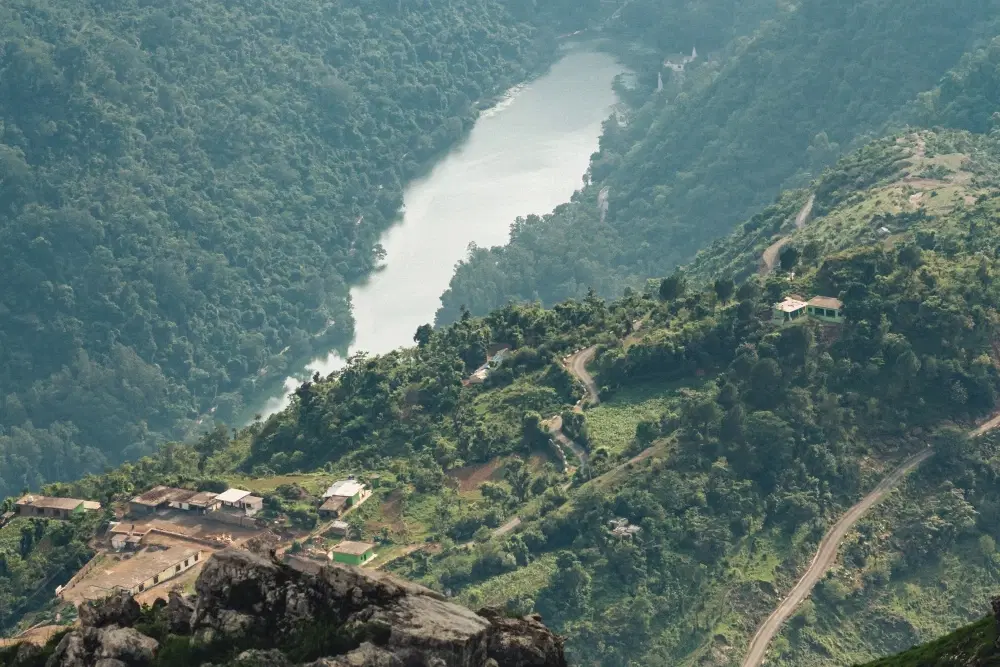
Hotels
•04 min read

In the heart of India, the winding paths through quaint villages offer a sensory journey like no other. Imagine the gentle rustle of leaves, the aroma of traditional cuisine, and the cheerful chatter of local residents welcoming you into their homes. Village treks in India invite travelers to explore offbeat trails, celebrating both nature and culture while promoting sustainable tourism practices. This blog explores expert insights on the best village treks across the Indian landscape, offering practical advice and vivid descriptions to help you plan an unforgettable adventure.
Village treks in India stand apart from conventional mountain or adventure treks. Rather than just battling rugged terrains, these journeys immerse you in local culture. You have the opportunity to interact intimately with villagers, experience age-old traditions, and witness the rural way of life firsthand. The trails lead you through landscapes that are as rich in heritage as they are in natural beauty. Moreover, these treks promote sustainability, with many itineraries designed to minimize environmental impact and support local economies.
Unlike commercial or high-altitude trekking routes that are often crowded and commercialized, village treks offer an offbeat and serene experience. The paths are less traveled, allowing for quiet introspection and unfiltered interactions with the heart of rural India. You can witness authentic Indian lifestyles, immerse yourself in cultural traditions, and discover hidden corners of the country that remain largely unexplored by mainstream tourists.
The Himalayan region boasts some of the most scenic village treks in India. Regions such as Kumaon, Sikkim, and Uttarakhand present trails with panoramic mountain views and deep cultural narratives. Adventures like the Kumaon High Altitude Village Trek and Sikkim Village-to-Village Trek offer spectacular vistas and opportunities to meet local families living in harmony with nature.
Beyond the Himalayas, offbeat routes in South India, Rajasthan, and the Western Ghats beckon the intrepid traveler. Explore the lush green paths of the Coorg Plantation Trails where coffee plantations merge with pristine countryside, or soak in the arid beauty on Rajasthan Desert Village Trails. These treks offer a delightful contrast to the rugged high-altitude adventures, highlighting India's diverse topography and cultural tapestry.
Choosing the right season can elevate your trekking experience. In the Himalayan region, spring and early autumn provide mild weather and clear skies, ideal for enjoying the fresh mountain air. In southern regions, winter months offer comfortable temperatures, while the monsoon season transforms the Western Ghats into a vibrant, green wonderland. Understanding the seasonal nuances is key to optimizing your journey through rural India.

One of the richest aspects of village treks is the chance to immerse yourself in local customs. Staying in traditional homestays, participating in community festivals, and even trying your hand at local crafts can enrich your experience. This form of cultural treks in India provides a platform for enduring connections, as you share stories, meals, and moments that transcend the typical tourist experience.
Eco treks India are more than scenic escapes—they are journeys that encourage responsible travel. By choosing eco-friendly routes and staying with local hosts, travelers contribute directly to community development. Eco-tourism initiatives help preserve the environment and support traditional ways of life, ensuring that natural and cultural legacies are honored for future generations.
Preparation is key to a comfortable trek. Make sure to pack light, breathable clothing and sturdy footwear to tackle uneven terrain with ease. It is wise to bring eco-friendly essentials such as reusable water bottles and biodegradable toiletries. A compact first-aid kit, layered clothing for variable weather, and a reliable backpack should also find a spot in your gear checklist.
Village treks in India are as rewarding as they are rugged. Travelers may face challenges such as spotty mobile connectivity or limited modern amenities. Embracing flexibility is crucial. Plan accordingly by informing someone of your itinerary and equipping yourself with offline maps or local guide recommendations. Understanding basic local phrases can also help bridge communication gaps when technology falls short.
Selecting a trek that matches your interests and physical capability is essential. Consider the trek’s difficulty level, duration, and the kind of cultural exposure you desire. Whether you’re a seasoned adventurer or a budding traveler, research and choose an itinerary that allows you to savor both the natural beauty and heritage of the villages.

Seasoned trekkers stress the importance of immersing yourself fully in the journey. Engage with locals and respect their customs and traditions. Keep an open mind and a flexible attitude—the unexpected encounters are often the highlights of any trek. Experts recommend traveling slowly to appreciate every nuance of the local culture and environment fully.
Many experts highlight remote village adventures for those seeking authentic experiences away from tourist crowds. Traditional village trails in less frequented regions are celebrated for their raw, unfiltered beauty. Listening to local recommendations can reveal secret spots where breathtaking landscapes and heartfelt hospitality await, ensuring a memorable journey into India’s rural soul.
Many consider Malana in Himachal Pradesh or Kalap in Uttarakhand to be among the most beautiful Himalayan villages, offering stunning landscapes and rich cultural heritage.
The Chadar Trek in Ladakh is often considered one of the scariest due to its extreme conditions and frozen river terrain.
Some of the best eco-treks include the Spiti Valley Homestay Trek, the Coorg Plantation Trails, and the Sikkim Village-to-Village Trek.
Village treks promote eco-tourism by encouraging travelers to stay in local homestays, purchase local products, and contribute to the local economy.
Pack essentials like sturdy trekking shoes, weather-appropriate clothing, a reusable water bottle, biodegradable toiletries, and a first-aid kit.
Village treks in India provide a unique gateway to explore offbeat paths that blend adventure, culture, and sustainable tourism. They offer a deep dive into rural traditions and pristine natural beauty, enabling travelers to experience India in its most authentic form. By embracing these treks, adventurers contribute to the preservation of local communities and the environment, ensuring that the charm of traditional villages continues to thrive for generations to come.